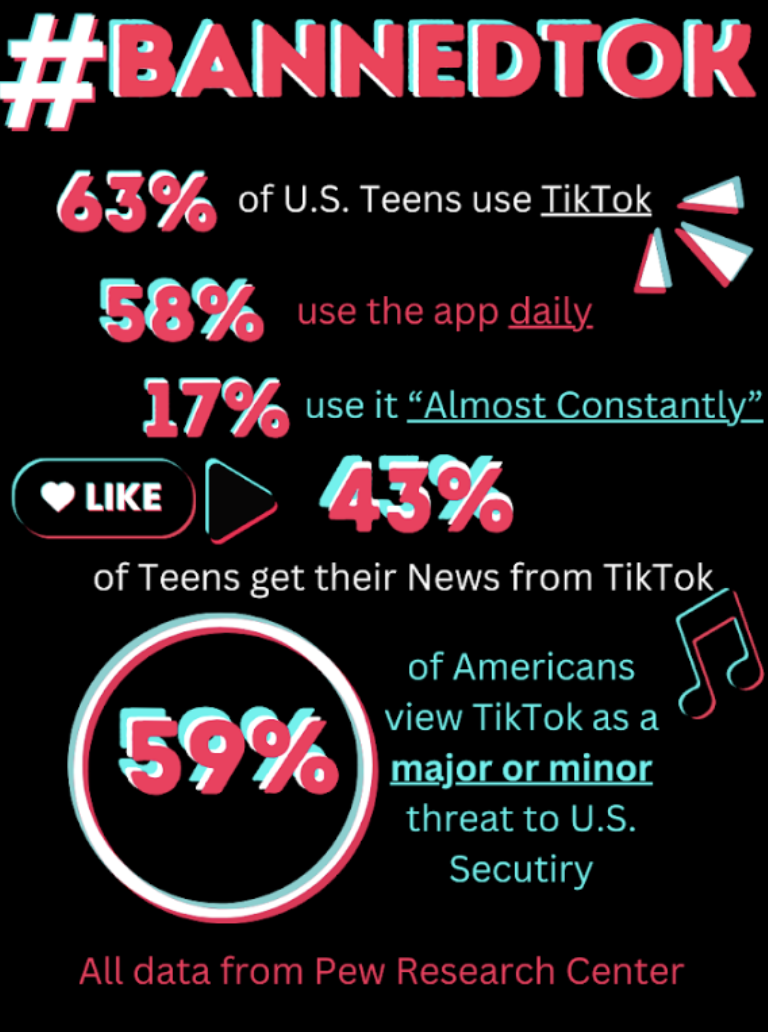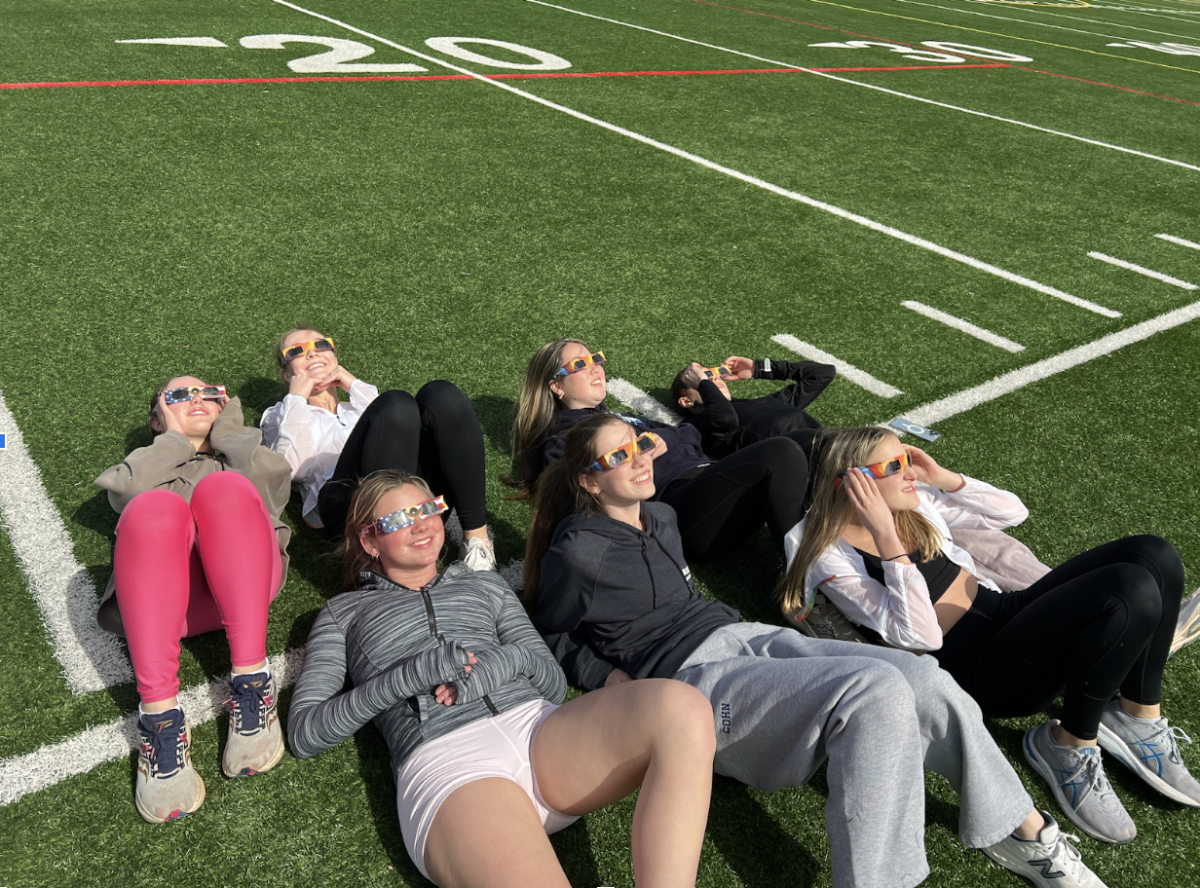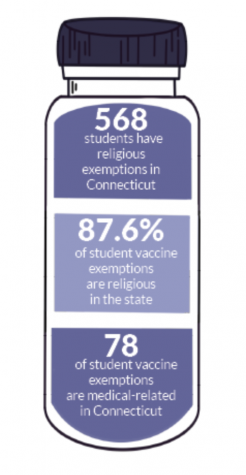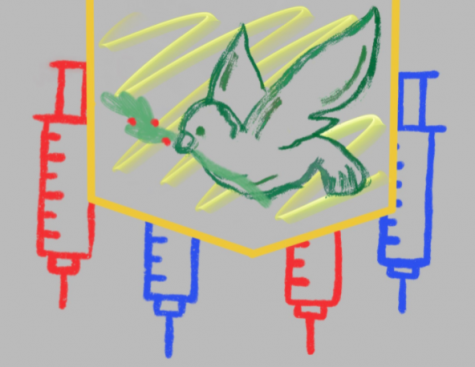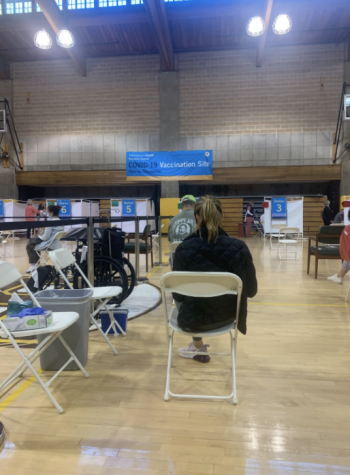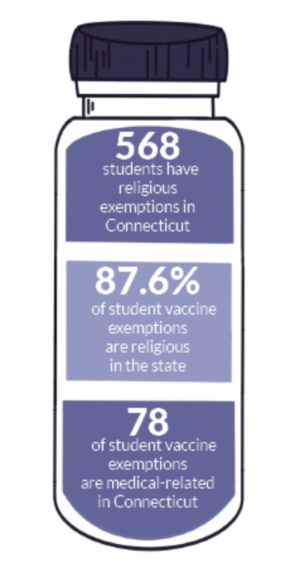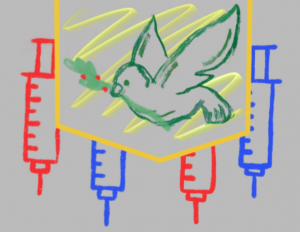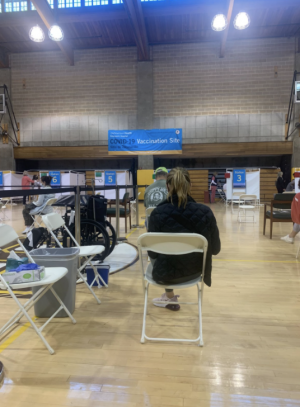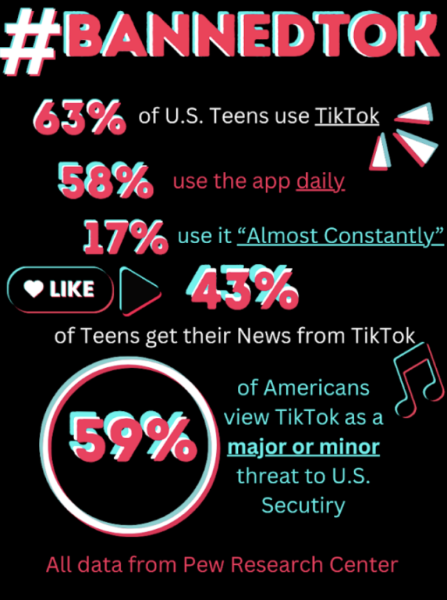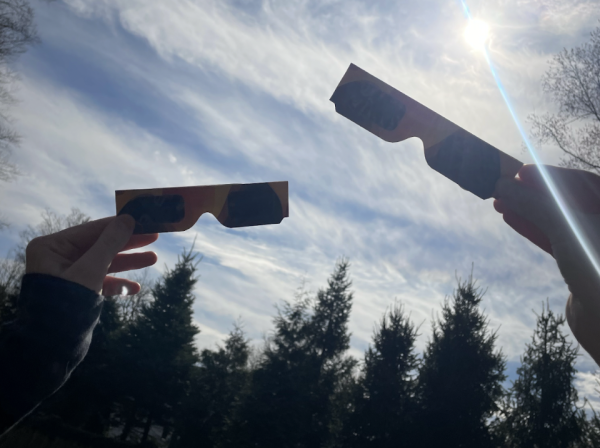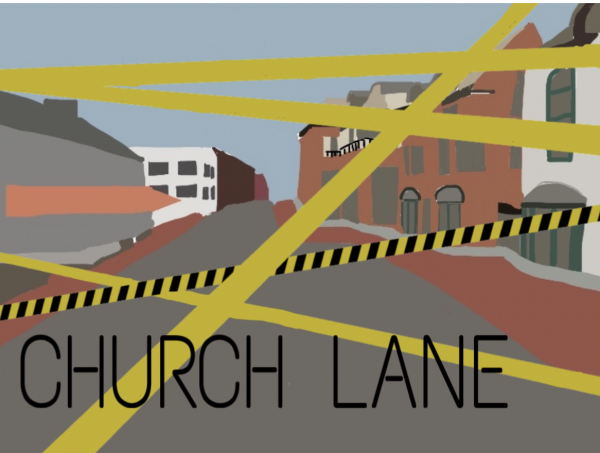Vaccine providers offer walk-in clinics to Connecticut residents
Photo by Anastasia Thumser ’22
Prior to April 27, Connecticut residents scheduled vaccine appointments through the statewide COVID portal or a specific provider website, which would be confirmed before receiving their dose. Governor Ned Lamont’s implementation of walk-in clinics is meant to combat the traffic seen below and ease the process of getting vaccinated.
Over 50 vaccine centers in Connecticut will no longer require appointments starting on April 27, as stated in a press release by Governor Ned Lamont one day before implementation.
The announcement relieved many Staples students, who believe vaccines to be vital means of overcoming COVID, yet found the previous scheduling process inefficient and unproductive.
“The sites and systems to schedule vaccines tend to get overwhelmed and can only offer so many vaccines,” Alexia Abrams-Rivera ’22 said. “I believe [walk-in] clinics will help us reach herd immunity. If the clinics were available before I got vaccinated, I definitely would have considered [getting my shot there].”
Participating providers will offer walk-in hours to Connecticut residents, where the vaccine will be administered on site. While recipients are encouraged to bring personal identification and medical insurance, according to the Connecticut COVID Vaccination Portal, neither are mandated to receive the vaccine.
The transition to walk-in clinics — as opposed to scheduling through provider sites or the Connecticut COVID portal — was made in an effort to ease the process of vaccination and encourage Connecticut residents to receive immunization.
Some students, however, view walk-in clinics as potentially wasteful and unnecessary given the relative success of the scheduling process so far.
“Walk-in clinics will, of course, lead to more people getting vaccinated, but I would not consider going to one personally,” Zach Bishop ’22 said. “Scheduling an appointment is not that difficult, and the wait time for an appointment will probably not be as long now.”
Bishop also points out that patience is key considering the fact that other countries have yet to vaccinate high risk civilians.
“Although it is great that we are able to vaccinate so many people,” Bishop said, “it seems inappropriate to keep distributing the vaccine […] to those who aren’t at high risk of dying from COVID, when other countries are still trying to get elders and those with medical conditions vaccinated.”
Despite uncertainties surrounding this new approach to vaccination, walk-in clinics could serve as valuable resources now that Staples students have increased motivation to get vaccinated.
I believe [walk-in] clinics will help us reach herd immunity. If the clinics were available before I got vaccinated, I definitely would have considered [getting my shot there].
— Alexia Abrams-Rivera ’22
According to an email sent by Principal Stafford Thomas on April 23, students are exempt from two-week quarantines after their second dose of the Pfizer vaccine. School nurse Anna Fitzpatrick finds walk-in clinics to be more convenient and accessible for high schoolers, especially with concerns of contact tracing that prohibits participation in academic and extracurricular activities.
“Being quarantined is hard for students and staff,” Fitzpatrick said. “Keeping students active and engaged in school and sports is important. Vaccination will help keep our community safe, because the number of positive cases and virus spread will go down. Hopefully, this will motivate students to get vaccinated.”

Web Managing Editor Anastasia Thumser ’22 grew up as a writer, though the road wasn't easy.
“I kind of got off to a rough start in the class. It...

